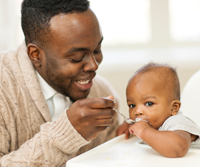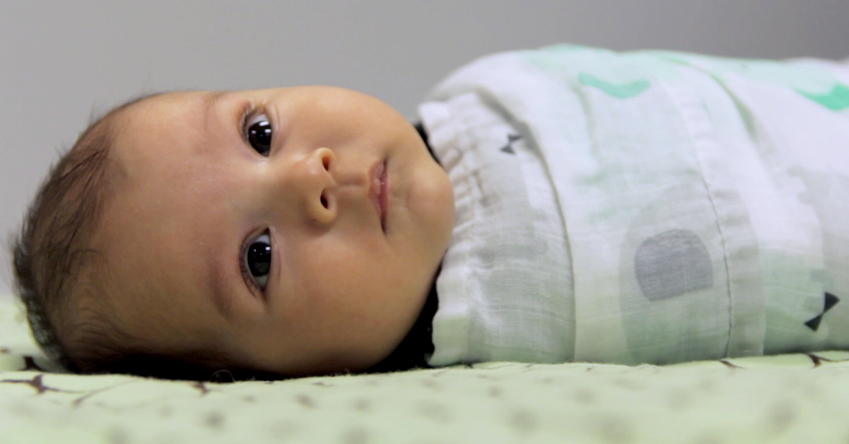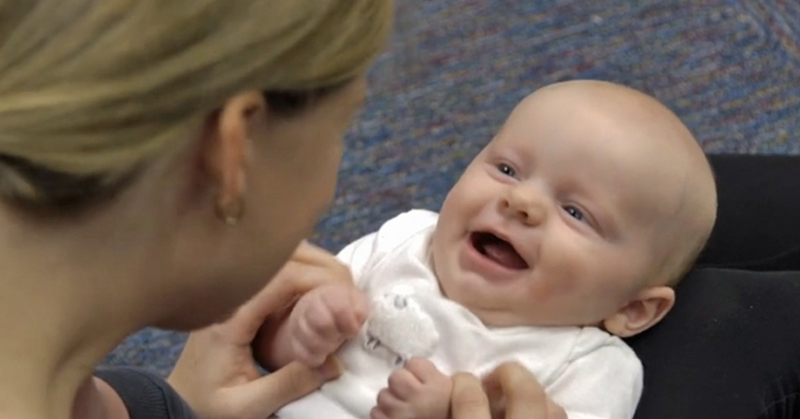Being the parent of an infant is a special experience. You are the center of your baby’s world. You can become close with your baby just by taking care of him. When you show love by caring for your baby, he feels secure. And talking, singing and reading to your baby right from the start supports the developing brain.

Talk About How to Care for Your Baby
Children do best when parents agree on how to raise them. Babies also feel safe and secure when their parents are calm and caring, and keep consistent routines.
Family and Friends
With the birth of a new baby, family ties are more important than ever. Children benefit from the love and attention of many caring adults. And you benefit from the support of family and friends. Let family and friends help with chores and errands, so you can be with your infant.
Staying Close as a Couple
Try to spend some time together each night after your baby goes to sleep, even if it is only a few minutes. Your doctor can tell you when it is OK to have sex again. It’s usually at least 4 to 6 weeks. And even if you are not ready to have sex, let your partner know you love him or her. For more tips, search for information on “becoming a parent” at KidsHealth.
You can get pregnant again soon after giving birth. Breastfeeding does not prevent pregnancy. Some kinds of family planning can be used while you breastfeed. Contact Arizona Family Health Partnership to find out about family planning options.

Support in Your Home
Strong Families AZ is a network of free home visiting programs that helps families create a supportive environment and raise healthy children. Programs are for pregnant women and families with children birth to age 5.
If You Are a Single Parent
Parenting a newborn on your own is a challenge, but lots of people do it, and you can do it well. Accept help from family and friends.
If You Have Other Children
- Try to spend some time alone with each child, so each feels loved.
- Try to keep routines like meals and bedtime.
- Try not to change child care or start toilet learning for an older child right after your baby is born. Do it while you are pregnant. Or wait a few months after the birth.
THINGS YOU CAN DO
 Talk About How to Care for Your Baby
Talk About How to Care for Your Baby
- Agree on routines for your baby.
- Talk about how to handle crying and other issues.
- Try to be patient with each other.
- If you argue, try to stick to the main problem. Listen carefully and try not to blame each other.
- If you have trouble agreeing, try talking to your baby’s doctor.
Share Responsibilities
- Take turns with tasks, like bathing or changing diapers.
- Share housework, but try not to be too fussy. Spending time with your baby is more important than having a perfect house.
Talk, Read and Sing to Your Baby
- Sharing words with your baby from the very beginning helps their brains develop.
- Have conversations with your baby and be responsive to their sounds and expressions.
- Ask your baby questions and describe what you’re doing during diaper changes and other everyday moments.
- Make reading books with your baby part of your daily routine.
The First Things First Parent Kit was developed in partnership with Health Research for Action/UC Berkeley. © 2018 The Regents of the University of California. Additional video, graphic and other content © 2018 First Things First. All rights reserved.



